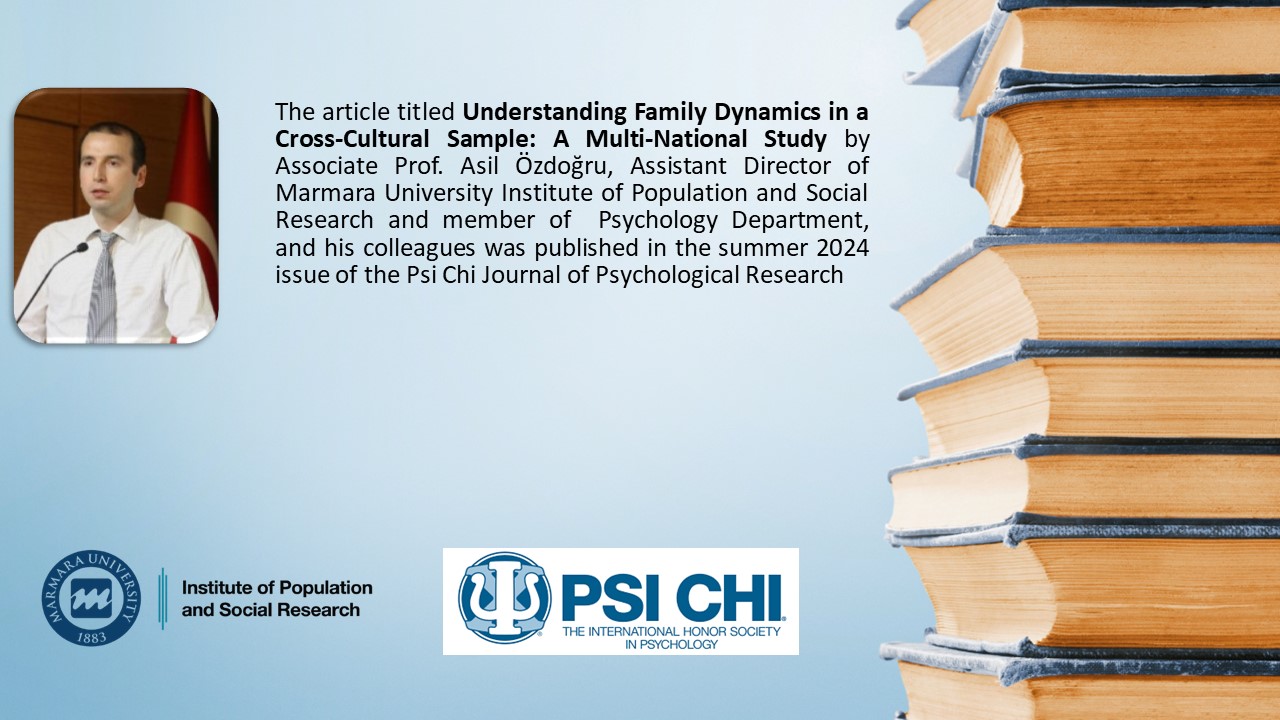
The article titled “Understanding Family Dynamics in a Cross-Cultural Sample: A Multi-National Study” by Doç. Dr. Asil Özdoğru, Assistant Director of Marmara University Institute of Population and Social Research and Head of the Developmental Psychology Division in the Department of Psychology, and his colleagues was published in the summer 2024 issue of the Psi Chi Journal of Psychological Research. The article disseminated the findings of an international study that tested the cross-cultural validity of a family systems theory by examining the family relationships of young adults from seven countries, including Turkey.
Title: Understanding Family Dynamics in a Cross-Cultural Sample: A Multi-National Study
Abstract:
The Family Systems Circumplex Model posits that balanced levels of cohesion and adaptability are associated with positive familial outcomes, whereas extremely high or low levels of these factors are associated with deleterious outcomes. Despite the popularity and utility of this model in Western cultures, there is a dearth of empirical data supporting its use in more culturally diverse contexts. The current, preregistered study assessed the Family Circumplex Model, cultural factors, and emerging adult outcomes across 7 countries (i.e., China, Iran, Nigeria, Switzerland, Turkey, the United Kingdom, and the United States). Participants were N = 3,593 emerging adults, mostly self-identifying as women (71.3%). Collaborators were participants in Psi Chi’s Network for International Collaborative Exchange (NICE) and administered measures related to family dynamics and cultural orientation to participants in a random order. Results indicated that the Family Circumplex Model did not fit cross-culturally. As such, a new model was adapted, the Expanded Circumplex Model, which demonstrated invariance across samples and between women and men. The Expanded Circumplex Model retained 6 constructs with differences regarding the separation of disengagement into 2 variables and the combining of adaptive flexibility and cohesion. The current study suggests that the cultural context in which family dynamics occur should be taken into consideration when conceptualizing family dynamics theory and measurement. Future work should seek to replicate and further apply the Expanded Circumplex Model to familial outcomes.
